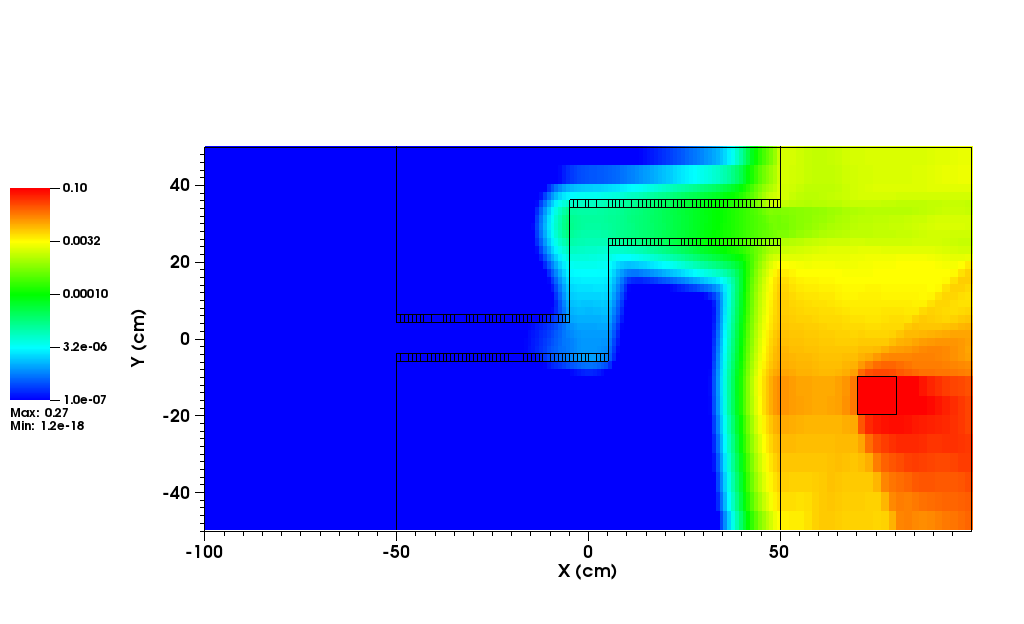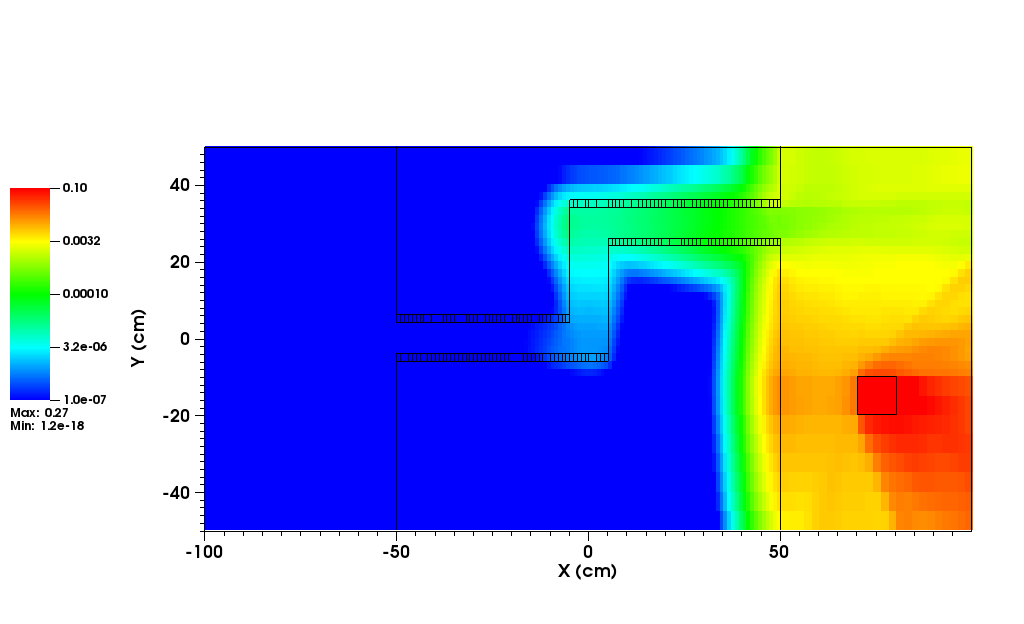Madicken Munk, Garrett Baltz, Rachel Slaybaugh, Richard Vasques
 Hybrid methods for radiation transport aim to use the speed and uniform uncertainty distribution obtained from deterministic transport to accelerate and improve performance in Monte Carlo transport. An effective use of this type of transport hybridization can lead to a reduced uncertainty in the solution and/or a faster time to a solution. However, not all hybrid methods work for all types of radiation transport problems. In problems where the method is not well-suited for the problem physics, a hybrid method may perform more poorly than analog Monte Carlo, leading to wasted computer time and energy, or even no acceptable solution.
Hybrid methods for radiation transport aim to use the speed and uniform uncertainty distribution obtained from deterministic transport to accelerate and improve performance in Monte Carlo transport. An effective use of this type of transport hybridization can lead to a reduced uncertainty in the solution and/or a faster time to a solution. However, not all hybrid methods work for all types of radiation transport problems. In problems where the method is not well-suited for the problem physics, a hybrid method may perform more poorly than analog Monte Carlo, leading to wasted computer time and energy, or even no acceptable solution.
This project builds on existing software infrastructure (ORNL’s Denovo and ADVANTG) to generate hybrid methods for deep-penetration radiation transport problems. Specifically, we are developing variance reduction parameters for problems with strong angular anisotropy without explicitly including angular biasing parameters. No existing, highly accessible, automated hybrid method has incorporated angular-dependence of the flux in generating variance reduction parameters, which has led to difficulty in the analysis of highly anisotropic problems. Our method should improve the computational performance of hybrid methods for anisotropic problems while also maintaining similar space and processing metrics as energy- and space- exclusive hybrid methods.

 Hybrid methods for radiation transport aim to use the speed and uniform uncertainty distribution obtained from deterministic transport to accelerate and improve performance in Monte Carlo transport. An effective use of this type of transport hybridization can lead to a reduced uncertainty in the solution and/or a faster time to a solution. However, not all hybrid methods work for all types of radiation transport problems. In problems where the method is not well-suited for the problem physics, a hybrid method may perform more poorly than analog Monte Carlo, leading to wasted computer time and energy, or even no acceptable solution.
Hybrid methods for radiation transport aim to use the speed and uniform uncertainty distribution obtained from deterministic transport to accelerate and improve performance in Monte Carlo transport. An effective use of this type of transport hybridization can lead to a reduced uncertainty in the solution and/or a faster time to a solution. However, not all hybrid methods work for all types of radiation transport problems. In problems where the method is not well-suited for the problem physics, a hybrid method may perform more poorly than analog Monte Carlo, leading to wasted computer time and energy, or even no acceptable solution.